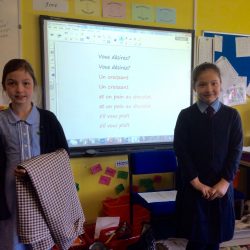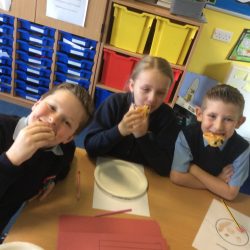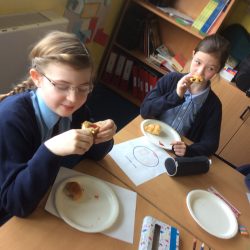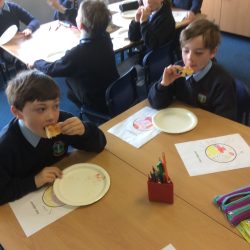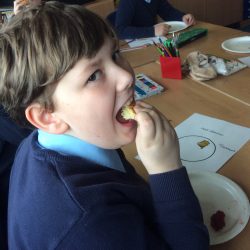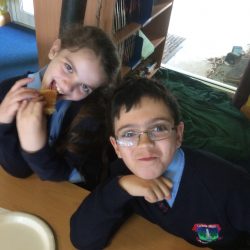Category: Year 4
Bubbleologists
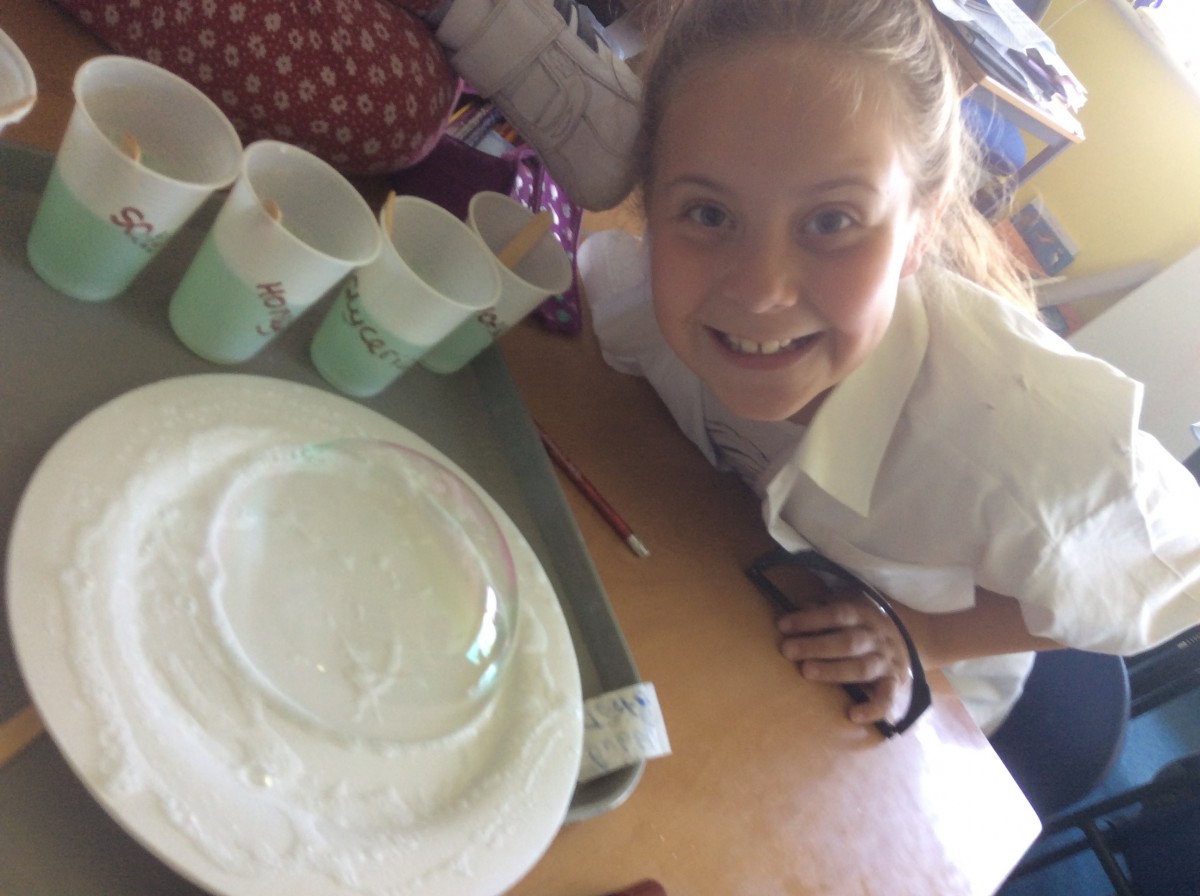
For science day we investigated soap and bubbles as we became bubbleologists for the day (or surface scientists to give it its proper name.)
We began the day by asking whether we need to use soap when we wash our hands. After preparing our volunteers with a messy mix of Vaseline and sprinkles, we investigated whether using soap and water, just water, or simply wiping with a towel would result in the cleanest hands. Soap helped and so we then learnt about how soap works.
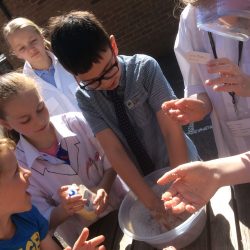
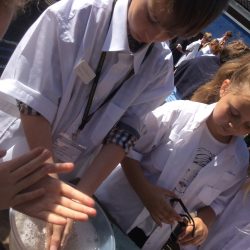
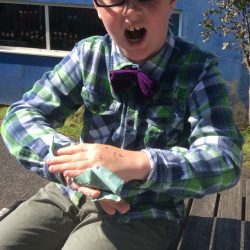
Later, we learnt about Agnes Pockels, a German chemist who helped establish the study of liquid surfaces despite not being allowed to study science as it was considered unsuitable for women!
After that we investigated different bubble mixtures in order to discover which would produce the longest lasting bubbles. We devised our experiment and then tested whether adding sugar, salt, honey, lime juice or glycerine would produce the best bubbles.
Finally, we explored making bubbles including blowing the largest bubble, creating bubble “cities”, making different shaped bubbles and making bubbles we could actually stand inside!
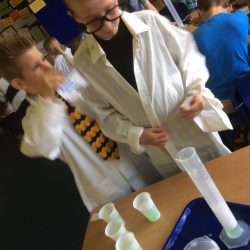
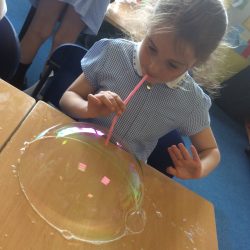
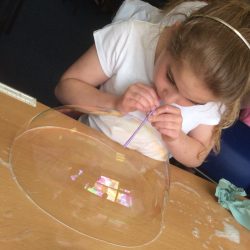
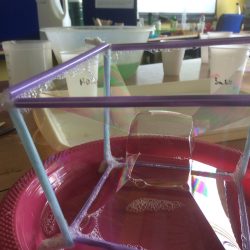
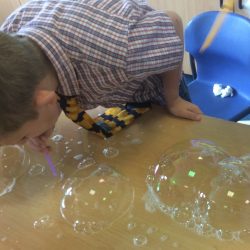
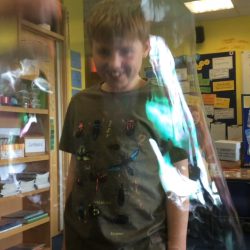
Sounds of the Aztec forest
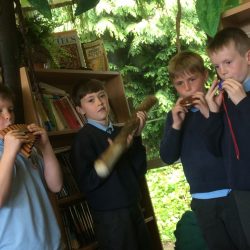
Having listened to some example pieces of music, 4RF composed their own musical pieces to evoke the forests of central Mexico. We used instruments familiar to the Aztecs such as simple percussion, ocarinas and pan pipes and came up with some imaginative pieces incorporating rainfall and birdsong into our rhythms.
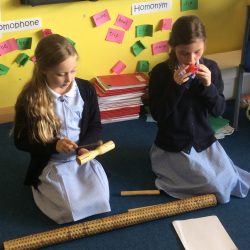
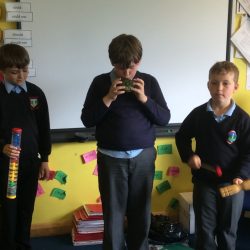
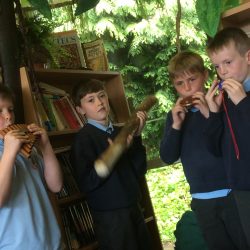
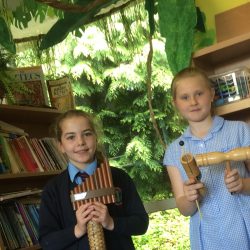
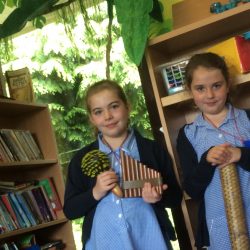
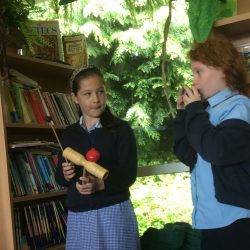
Geography Day
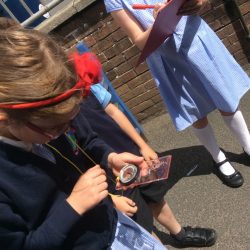
4RF had an unofficial geography day today as we practiced our map skills. From using a compass to exploring grid references as well as recognising map symbols, we took advantage of the sun to get out of the classroom.





Can Year 4 Conduct Electricity?
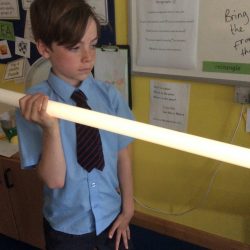
Actually, we started by investigating whether water conducts electricity using a low voltage circuit. It does and we also discovered that adding salt made the water more conductive.
We then discussed the dangers of water and electricity, what happens to our heart if we are electrocuted and how doctors might be able to restart your heart using electricity.
However, if we’re mostly made of water does that mean we can conduct electricity? Well, we had a safe way to test this question with a human circuit…
…and yes, Year 4 can conduct electricity.
*Do not experiment turning yourself into a circuit – we knew what we were doing with safe equipment!
Summer is here as we get to go on the field!
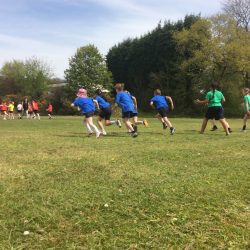
Our first athletics lesson on the field- hooray! Today we learned how to develop coordination & fluency in running for speed. We also practised jumping over hurdles. Tabetha was our roving reporter and took the photos of us in action! IMG_1073
IMG_1073 
Science and circuitry…
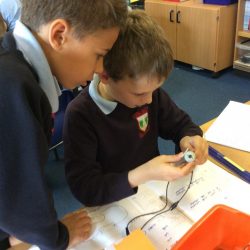
Trying different components.
Lickey Hills Grand Prix
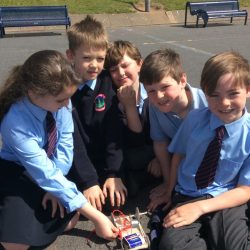
As part of our electricity topic, we’ve been designing, building and racing our own electric cars. Watch the trailer for our Grand Prix race below.
Amazing assembly!
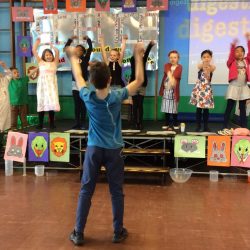
What a wonderful performance! Well done everyone for learning your lines and all those song words! ??
French Engineering
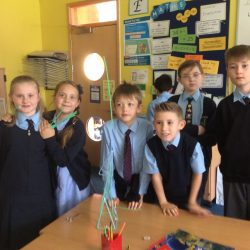
As part of International Day we learnt about Gustave Eiffel, a French civil engineer famous for the Eiffel Tower and constructing the Statue of Liberty.
We then split into groups and each group was given 30 drinking straws and a short piece of sticky tape – the challenge was to build the tallest tower, including a “windy day” test.
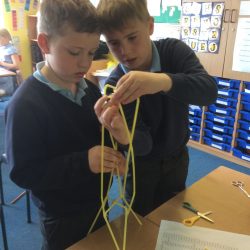
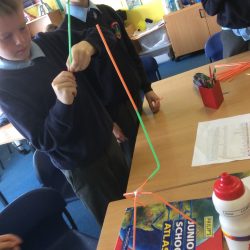
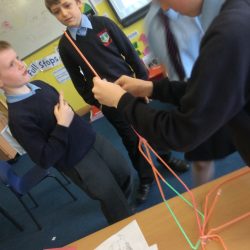
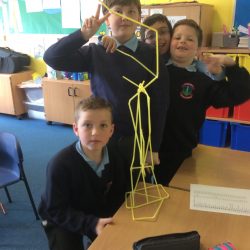
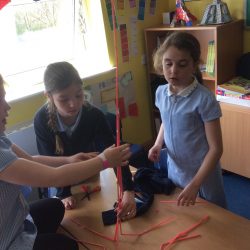
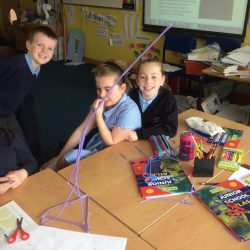
Vouz désirez?
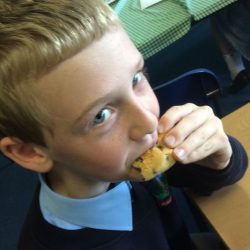
To start off our International Day we began with breakfast, or petit dejeuner. After learning how to order breakfast in a café and design our own breakfasts, we then had the chance to taste!
